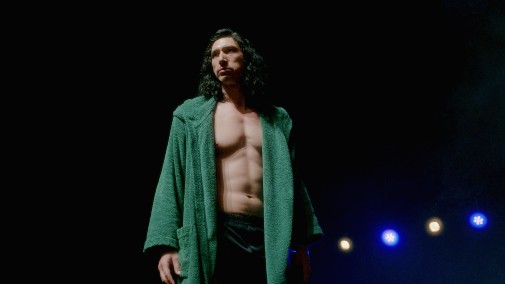
Leos Carax's Annette hits streaming today. You can watch this year's Cannes Best Director prize-winning feature on Amazon Prime Video and bask in all its insanity. The picture has proven pretty divisive, which is no surprise. Many of the director's anti-naturalistic choices and the Sparks' off-kilter music have been at the center of praise and pans. But, along with them, the most contested element of Annette seems to be its leading man, Adam Driver, whose performance goes to extremes of operatic grandeur intersected by American realism, aggressive anti-comedy, a guttural plunge into the depths of self-hatred. It's a big performance, maybe the biggest in the actor's career, so vast in risks and pitfalls, one can't help but admire the ambition. Annette also represents the first of three major projects the actor has coming out in 2021, marking this year as one of the potential high points in Driver's ever-growing career…
Examining the rise of Adam Driver is a fascinating exercise. The Marine turned thespian started on stage, appearing in off-Broadway productions right after his Julliard graduation in 2009. Like many an actor in his position, Driver did many minor TV appearances, including two Law & Order franchises. His film debut was Clint Eastwood's J. Edgar, an inauspicious start followed by other negligible roles in prestige-adjacent projects, including Spielberg's Lincoln, and some notable supporting turns in New York-set indies like Gayby and Frances Ha. While none of these performances are especially showy, there's a certain magnetism to Driver's presence, something that made people notice him as far back as those early years of his cinematic misadventures. Who knows? Maybe it's just his tall stature and strong features, a face unlike any other in current American cinema.
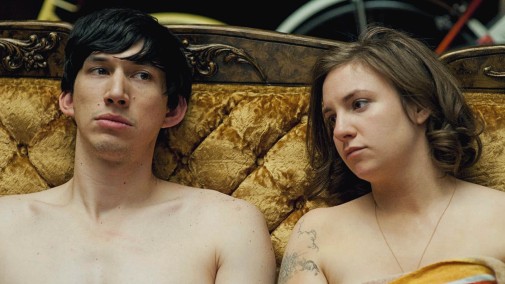
That being said, it wasn't on the big screen that Adam Driver got his big break. Lena Dunham's Girls isn't the best-remembered artifact from early 2010's HBO, and some would argue it has aged like milk. Nonetheless, whatever one's opinion is on the program, it's challenging to look at it and not appreciate the work of its sprawling cast, within which Driver's Adam Sackler was a stand-out from minute one. In total, he appeared in 49 episodes between 2012 and 2017, regularly pushing the boundaries of this millennial comedy and threatening to morph it into a sexually angsty tragedy with a cruel streak and conflicted soul. He proved to be the TV Academy's favorite cast member throughout the years, earning four Emmy nominations for his work on Girls. He should have probably won too.
Unlikely TV stardom coincided with a growing interest in pursuing exciting film projects. Sometimes, Driver worked with acclaimed American directors such as the Coens, Noah Baumbach, but he also expanded his horizons to mainstream comedy and European arthouse cinema. In many ways, watching him during those years felt like observing a rising talent figure out his place in the paradigm of modern moviemaking. Winning the Venice Volpi Cup for Saverio Constanzo's Hungry Hearts, Driver quickly achieved an aura of prestige and well-earned critical favoritism. Still, for most movie audiences, he wasn't what one would call a household name. That changed with Kylo Ren, Han Solo's treacherous son and the heir to Darth Vader's legacy of onflicted villains at the heart of the Star Wars story. In 2015, he went from critical darling to blockbuster sensation.
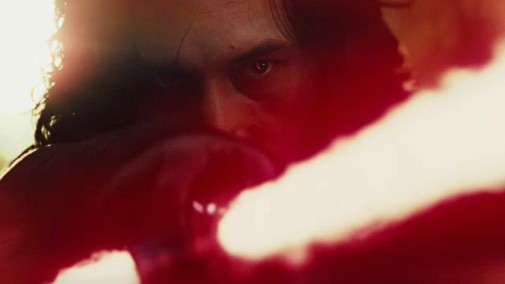
Interestingly, Driver's tenure in George Lucas's endless space fantasy didn't mean he ever stopped pursuing ambitious projects elsewhere. For instance, Jim Jarmusch's Paterson came along in the middle of his stint as Kylo Ren, and it's as far from CGI-heavy action cinema as one can get, revealing a range that even Driver's early fans might not have anticipated. Moreover, as his Skywalker odyssey was ending, it seemed like Driver was working overtime to consolidate a career outside Star Wars. In 2018, he got his first Oscar nomination for Spike Lee's BlacKKKlansman, and another nod followed the next year with Noah Baumbach's Marriage Story. If not for Joaquin Phoenix's Joker, he might have won the little golden man. So even as The Rise of Skywalker gave a mediocre end to this third trilogy, Driver was at his peak.
And then 2020 happened, and he didn't release a single film or TV project, the first time such a thing occurred since Adam Driver's debut. Under the circumstances, a slight pause in his meteoric rise isn't especially surprising, but it did provide a break from potential overexposure. What's more, instead of diving back into superpowered Disney nonsense, Driver has chosen to become Ridley Scott's new favorite leading man and try his hand at the hyper-artifice of Leos Carax. That loony musical represents the director at his most self-critical and hideously demanding, pushing Driver in a million different directions in terms of emotional register and tonal balance, physical expressivity, and vocal strain. As you might have surmised by reading this piece, I'm an Adam Driver fan. Yet, as much as I love his past works, nothing compares to the magnificent hot mess express of his Henry McHenry. As father and star of Annette – her Svengali, her Saturn, the monster she slays with blazing truth in the film's coda – Driver is unbelievable.
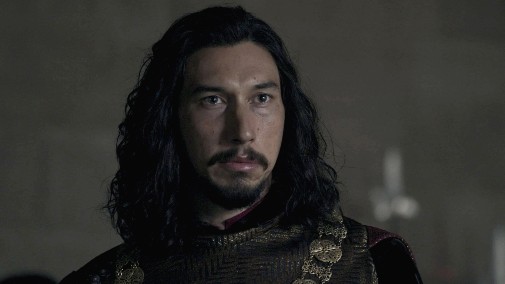
It's an ugly tour de force, but no less monumental because of it or the unmelodious nature of the actor's singing. Such fragilities somehow work in Carax's gonzo universe where opera stars are huge celebrities and nobody bats an eye at little wooden songstresses. What's more curious is that Driver's other 2021 projects are even more significant than Annette and feel like they exist on nearly antithetical wavelengths. The Last Duel seems to harken back to Ridley Scott's other incursions into the realm of the historical epic, gritty and enshrined in a pretension of realism. While vile and maybe villainous, Driver's Jacques LeGris is a central figure of the real-life drama, and it sounds like one hell of a role to pull off. Add to that the rumored experiments with divergent perspectives, and it might be another showcase part. House of Gucci, on the other hand, feels like a camp explosion of the highest magnitude. Will Driver indulge in the excess, or will he pull back? Whatever he does, no conversation about the 2021 cinematic year will be complete without mentioning Driver.
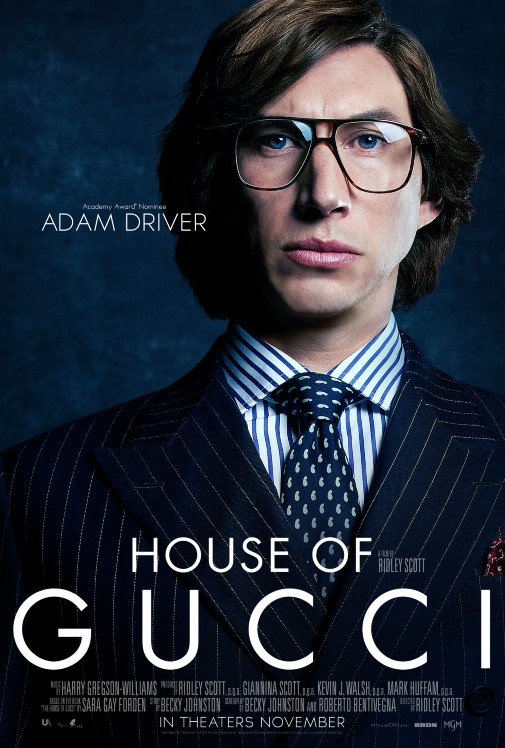
All that, and this is the year when Driver blessed us with a Burberry ad campaign where he turns into a disconcertingly hot centaur. What more can someone ask from one of Hollywood's brightest and fastest-rising leading men?